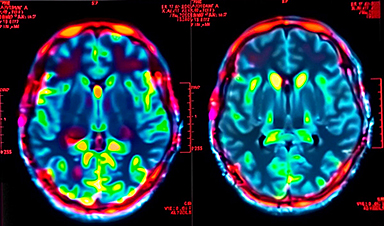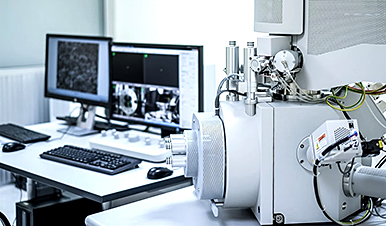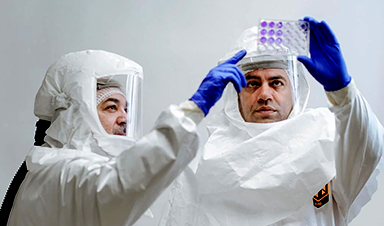DNA Script has raised $38.5 million in new financing to commercialize a process that it claims is the first big leap forward in manufacturing genetic material.
The revolution in synthetic biology that’s reshaping industries from medicine to agriculture rests on three, equally important pillars.
They include: analytics — the ability to map the genome and understand the function of different genes; synthesis — the ability to manufacture DNA to achieve certain functions; and gene editing — the CRISPR-based technologies that allow for the addition or subtraction of genetic code.
New technologies have already been introduced to transform the analytics and editing of genomes, but little progress has been made over the past 50 years in the ways in which genetic material is manufactured. That’s exactly the problem that DNA Script is trying to solve.
Traditionally, making DNA involved the use of chemical compounds to synthesize (or write) DNA in chains that were limited to around 200 nucleotide bases. Those synthetic pieces of genetic code are then assembled to make a gene.
DNA Script’s technology holds the promise of making longer chains of nucleotides by mirroring the enzymatic process through which DNA is assembled within cells — with fewer errors and no chemical waste material. The enzymatic process can accelerate commercial applications in healthcare, chemical manufacturing and agriculture.
“Any technology that can make that faster is going to be very valuable,” says Christopher Voigt, a synthetic biologist at the Massachusetts Institute of Technology in Cambridge, told the journal Nature.
DNA Script isn’t the only company in the market that’s looking to make the leap forward in enzymatic DNA production. Nuclear, a startup working with Harvard University’s famed geneticist, George Church, and Ansa Bio, a startup affiliated with Jay Keasling’s Berkeley lab at the University of California, are also moving forward with the technology.
But the Paris-based company has achieved some milestones that would make its technology potentially the first to come to market with a commercially viable approach.
Image Credit: Envato
News This Week
Does COVID increase the risk of Alzheimer’s disease?
Scientists discover that even mild COVID-19 can alter brain proteins linked to Alzheimer’s disease, potentially increasing dementia risk—raising urgent public health concerns. A recent study published in the journal Nature Medicine investigated whether both mild and [...]
New MRI Study Reveals How Cannabis Alters Brain Activity and Weakens Memory
A massive new study sheds light on how cannabis affects the brain, particularly during cognitive tasks. Researchers analyzed over 1,000 young adults and found that both heavy lifetime use and recent cannabis consumption significantly reduced brain [...]
How to Assess Nanotoxicity: Key Methods and Protocols
With their high surface area and enhanced physicochemical properties, nanomaterials play a critical role in drug delivery, consumer products, and environmental technologies. However, their nanoscale dimensions enable interactions with cellular components in complex and [...]
Nanotech drug delivery shows lasting benefits, reducing need for repeat surgeries
A nanotechnology-based drug delivery system developed at UVA Health to save patients from repeated surgeries has proved to have unexpectedly long-lasting benefits in lab tests – a promising sign for its potential to help human patients. [...]
Scientists Just Found DNA’s Building Blocks in Asteroid Bennu – Could This Explain Life’s Origins?
Japanese scientists detected all five nucleobases — building blocks of DNA and RNA — in samples returned from asteroid Bennu by NASA’s OSIRIS-REx mission. NASA’s OSIRIS-REx mission brought back 121.6 grams of asteroid Bennu, unveiling nitrogen-rich organic matter, including DNA’s essential [...]
AI-Designed Proteins – Unlike Any Found in Nature – Revolutionize Snakebite Treatment
Scientists have pioneered a groundbreaking method to combat snake venom using newly designed proteins, offering hope for more effective, accessible, and affordable antivenom solutions. By utilizing advanced computational techniques and deep learning, this innovative [...]
New nanosystem offers hope for improved diagnosis and treatment of tongue cancer
A pioneering study has unveiled the Au-HN-1 nanosystem, a cutting-edge approach that promises to transform the diagnosis and treatment of tongue squamous cell carcinoma (TSCC). By harnessing gold nanoparticles coupled with the HN-1 peptide, [...]
Global Trust in Science Is Stronger Than Expected – What’s Next?
A landmark global survey conducted across 68 countries has found that public trust in scientists remains robust, with significant support for their active involvement in societal and political matters. The study highlights the public’s [...]
Microplastics in the bloodstream may pose hidden risks to brain health
In a recent study published in the journal Science Advances, researchers investigated the impact of microplastics on blood flow and neurobehavioral functions in mice. Using advanced imaging techniques, they observed that microplastics obstruct cerebral blood [...]
AI Surveillance: New Study Exposes Hidden Risks to Your Privacy
A new mathematical model enhances the evaluation of AI identification risks, offering a scalable solution to balance technological benefits with privacy protection. AI tools are increasingly used to track and monitor people both online [...]
Permafrost Thaw: Unleashing Ancient Pathogens and Greenhouse Gases
Permafrost is a fascinating yet alarming natural phenomenon. It refers to ground that remains frozen for at least two consecutive years. Mostly found in polar regions like Siberia, Alaska, and Canada, permafrost plays a [...]
Frequent social media use tied to higher levels of irritability
A survey led by researchers from the Center for Quantitative Health at Massachusetts General Hospital and Harvard Medical School has analyzed the association between self-reported social media use and irritability among US adults. Frequent [...]
Australian oysters’ blood could hold key to fighting drug-resistant superbugs
Protein found in Sydney rock oysters’ haemolymph can kill bacteria and boost some antibiotics’ effectiveness, scientists discover An antimicrobial protein found in the blood of an Australian oyster could help in the fight against [...]
First U.S. H5N1 Death Sparks Urgency: Scientists Warn Bird Flu Is Mutating Faster Than Expected
A human strain of H5N1 bird flu isolated in Texas shows mutations enabling better replication in human cells and causing more severe disease in mice compared to a bovine strain. While the virus isn’t [...]
AI Breakthrough in Nanotechnology Shatters Limits of Precision
At TU Graz, a pioneering research group is leveraging artificial intelligence to drastically enhance the way nanostructures are constructed. They aim to develop a self-learning AI system that can autonomously position molecules with unprecedented precision, potentially [...]
How Missing Sleep Lets Bad Memories Haunt Your Mind
Research reveals that a lack of sleep can hinder the brain’s ability to suppress unwanted memories and intrusive thoughts, emphasizing the importance of restful sleep for mental health. Sleep deprivation has been found to [...]























Leave A Comment